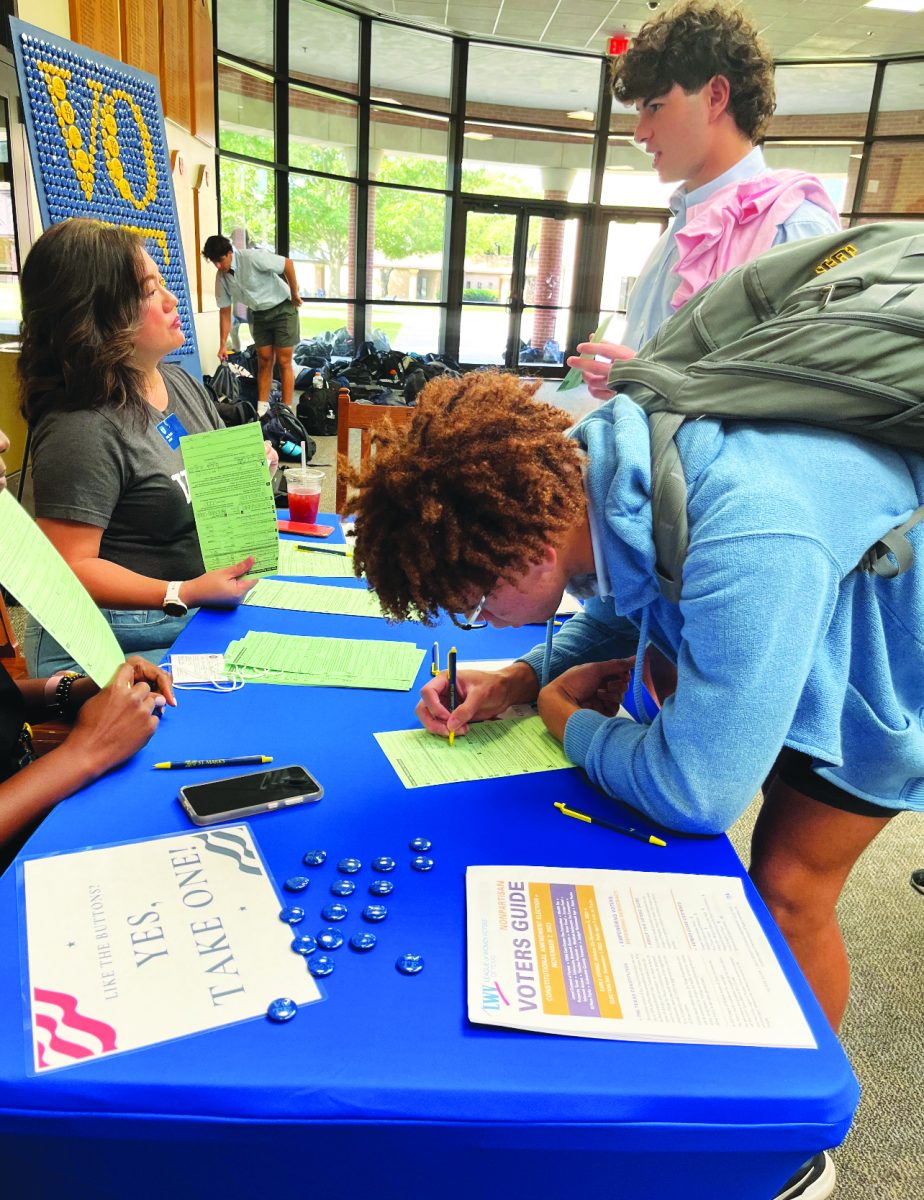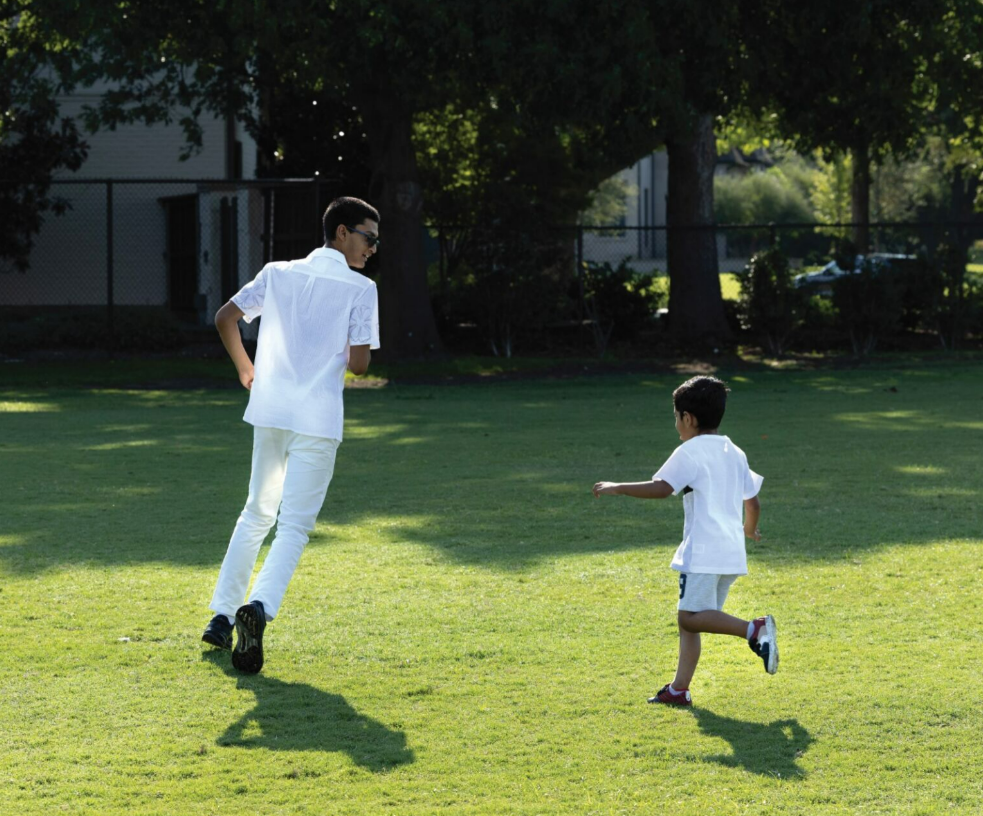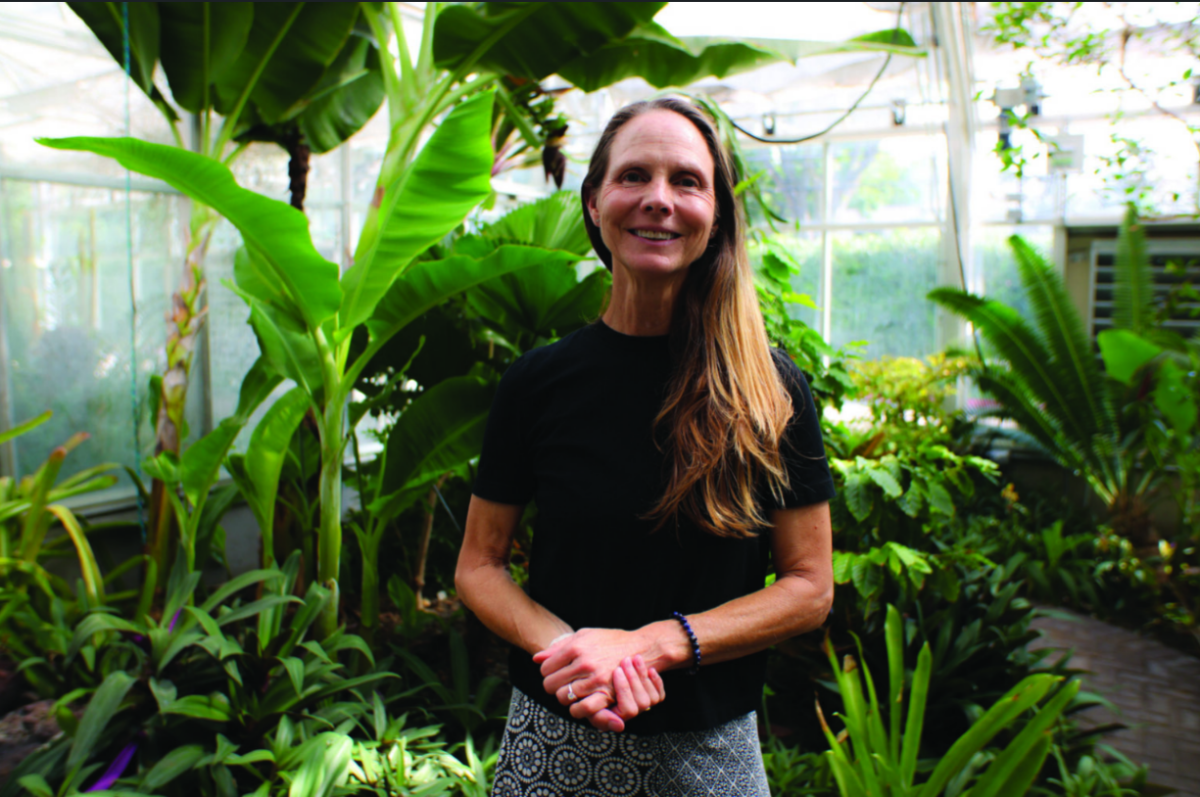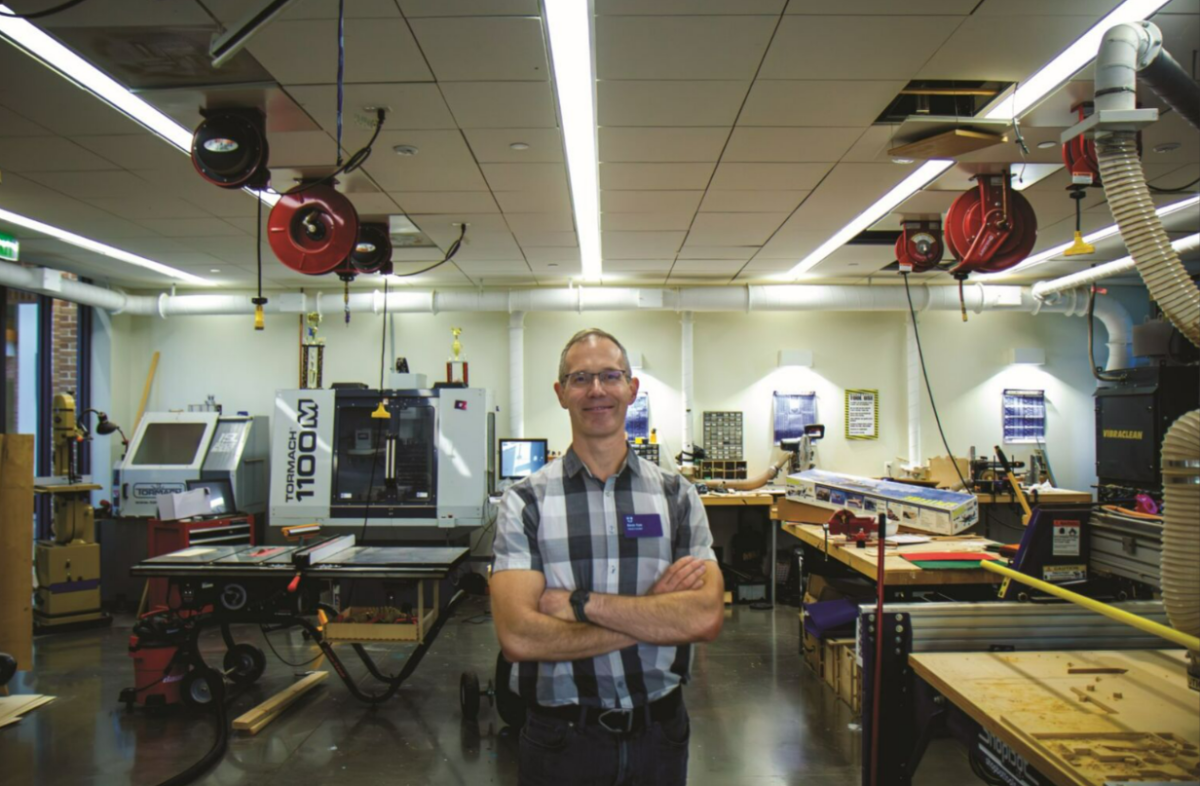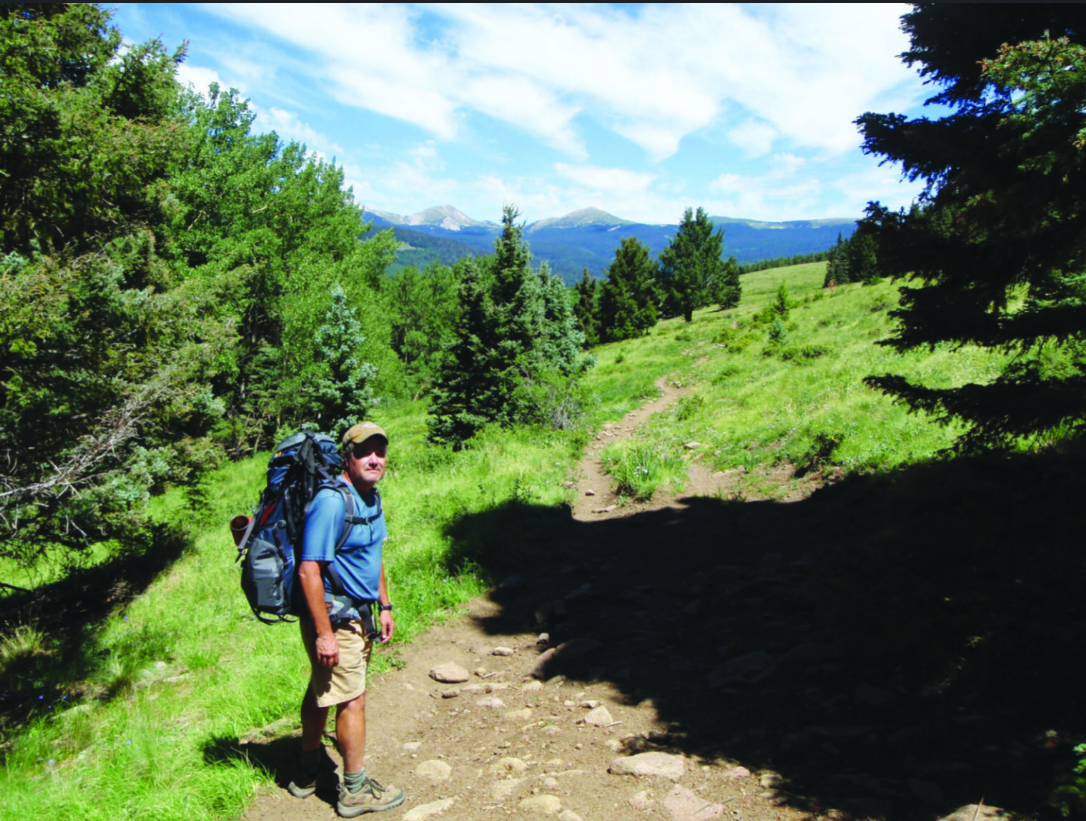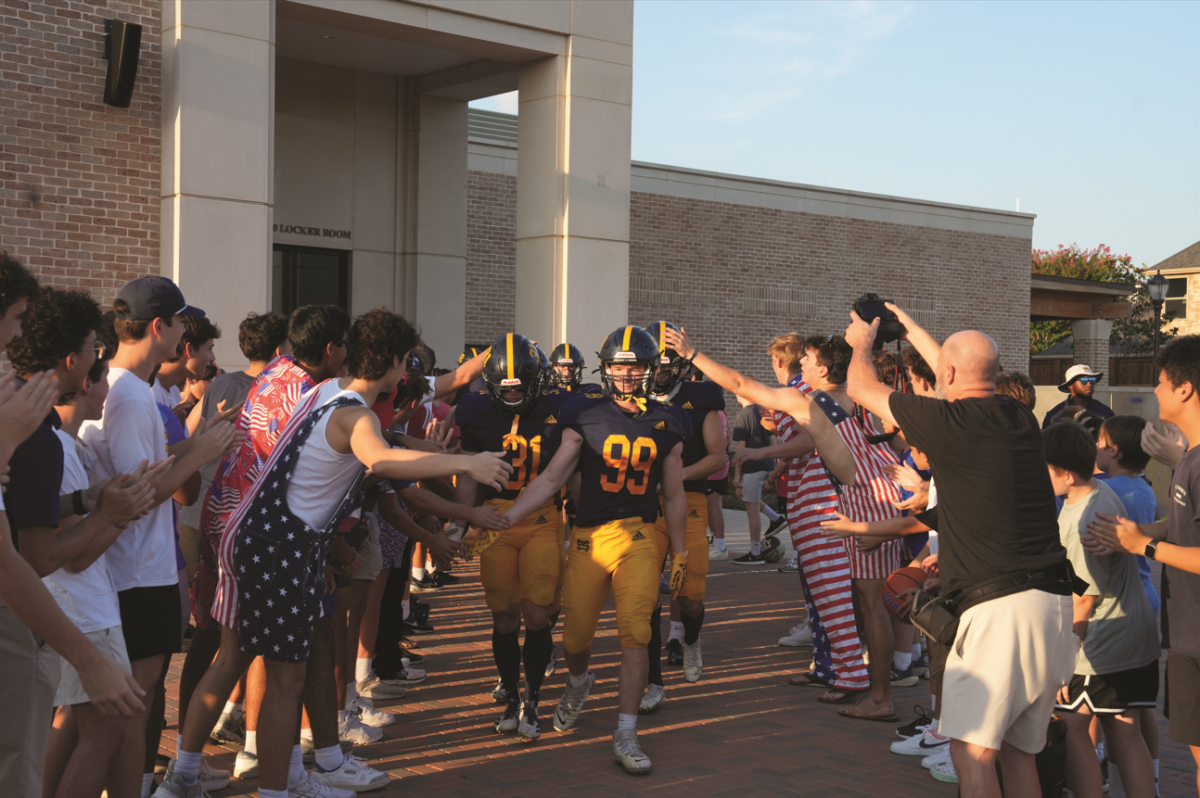Less than six months remain for Americans to make a decision. A decision that will directly impact the lives of more than 300 million people. A decision that will determine the course of the country’s future.
As people begin lining up at ballot boxes, the state of the nation for the next four years lies in their hands. Each vote resembles an opinion, a voice that represents ideas and aspirations.
And once the ballots are counted on Election Day, Nov. 5, a new blueprint of the country will be released for the world to see.
“All elections year-round are important, but this one is super important because it is national,” St. Mark’s Parents Association member and current co-chair of Marksman voter registration Amy Peck said. “An opportunity to participate in this comes only once every four years.”
Despite this, Texas ranked 41st for voter turnout in the 2020 presidential election, with only 51.3 percent of the population actually casting a vote.
“It’s really all about empowering people to vote,” Peck said. “Unfortunately, in Texas, our voter turnout is pretty terrible. A lot of people who are eligible to vote are not registered, but of those people who are registered, very few people actually participate in our election. People just feel like their vote doesn’t count.”
Although many people know who they want to vote for and understand how to cast a ballot, voting misconceptions like these cause students to stray away from participating.
“Think of it as a sports analogy,” English and history instructor Dr. John Perryman said. “You are never out of a game—every little play matters. We saw that with the Patriots a few years ago, and certainly in recent American elections. Every vote matters. I’m of the mindset that we can move the needle on things if everyone does a little bit every single day, whatever the cause is. I’m a big believer in buying into this incremental understanding.”
The significance of this presidential election provides eligible voters on campus with an even greater reason to register and improve the voter turnout percentages in Texas.
“What most people don’t recognize is that since fewer people show up for the smaller elections, those who do show up magnify their impact,” Peck said. “Compared to previous years, the registration effort is going to mostly stay the same, but we intend to push and make the turnout much higher than before because now it matters a lot more.”
The ability to influence the nation’s government also necessitates responsible voting. To ensure that a solid foundation of political understanding backs votes, the voter drive organization has registered over 51,000 students since its founding in 2015, holding bi-weekly meetings to educate them on what to look out for and pass on relevant information leading up to the elections.
“The worst thing to do is to go in voting while not knowing who is on the entire ballot, and it would be a lost opportunity since there is no do-over,” Peck said. “It’s all about getting students to understand what to look for, and we teach them how in a completely nonpartisan fashion.”
Perryman believes that students can begin expanding their political literacy by sticking to regular routines that involve checking current events and trusted news sources.
“I suggest students read widely, in a variety of sources, for the best information on the American political scene, and that includes quality magazines or newspapers,” Perryman said. “I tend to think the sources that have gatekeepers (paywalls) are the best sources and that there’s a lot of stuff floating out there on social media that is not accurate.”
Going to the polls with extensive research and acquired knowledge beforehand is the beginning of a person’s electoral journey. Submitting a vote is not only an expression for a desired candidate but also a testament to the strong civic connection between a voter and the society to which they belong.
“Community requires responsibility, involvement and engagement,” Perryman said. “You can’t just be a passive member of a community. You have to be invested. To grow personally, to care for others and to care for a community, you’ve got to be involved. You can’t passively go through life. That’s no way to live.”
Voting is a right after one turns 18, but to Peck, not enough people choose to act on it and influence the development of the world around them.
“At the end of the day, voting in this type of election is a coming-of-age privilege,” Peck said. “A number of juniors and seniors are eligible to vote in this election, and their vote gives them a high level of impact on their community.”
Voters prepare for 2024 election
After four years, the primary presidential election is once again open. The Voter Registration Drive is planning to start the next school year strong by registering several eligible students to hit the Nov. 5 voting deadline.
May 18, 2024
Categories:
More to Discover


